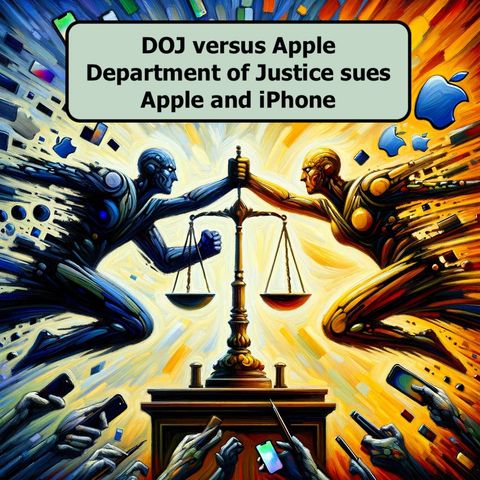13 NOV. 2024 · In a recent turning event, the U.S. Department of Justice (DOJ) has brought an antitrust lawsuit against technology giant, Apple Inc. The main contention revolves around the alleged monopoly maintained by Apple in the mobile phone market, more specifically, centering on its renowned flagship product - the iPhone.
The Department of Justice is putting the spotlight on the market control that Apple possesses concerning its iPhones, intensifying scrutiny on the conglomerate's practices. The broader issue at stake here is whether or not Apple has unjustly exploited its market position to stifle competition or manipulate the market for its gain, a prospect that has very far-reaching implications for consumer welfare and market competition overall.
Although Apple's iPhones constitute a significant chunk of the global smartphone market, the real crux of the argument seems to lie in the ecosystem that Apple has built around it - one that ties consumers and developers to Apple's proprietary services like the App Store and other integrated software. It is from these aspects that the antitrust concerns primarily stem.
In particular, the DOJ is probing into how this ecosystem, robust and monopolistic in nature, might have been used to establish barriers to entry and limit competitive forces. For example, applications on iPhones can be installed only through Apple's App Store, a feature that critics term as monopolistic.
Apple, meanwhile, has defended its position staunchly, arguing that its practices are merely serving to create better products that are safe and secure for its users. The company's defense revolves around the notion that its integrated services model fosters a user experience that is seamless, efficient, and above all, secured.
However, the courts will now decide if Apple's control of its ecosystem is harmfully anti-competitive or if it is justified in the name of consumer benefit and security. The impending lawsuit, therefore, promises to be a landmark event for tech antitrust law in the United States.
It would be worth mentioning that the case gives echoes of the Microsoft antitrust litigation from around two decades ago, where a similar debate about technology, competition and monopolies, considerably reshaped the tech landscape. Given the stakes, the reverberations of the Apple case will likely be felt far beyond smartphones and tech, challenging and possibly recalibrating the drawing lines of antitrust considerations in the modern digital age.
The Department of Justice holding tech giants accountable to ensure fair competition in the market could have far-reaching implications for the digital economy and the future of technology innovation. As the DOJ-Apple showdown carries on, consumers, market players, legal critics, and tech enthusiasts will be keeping a close watch to see how this plays out.


